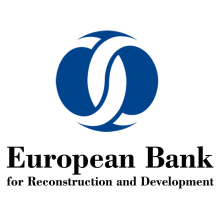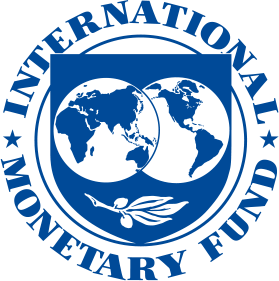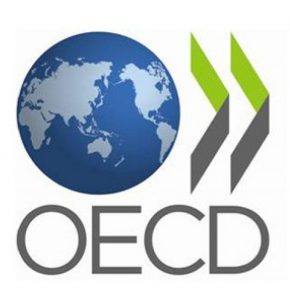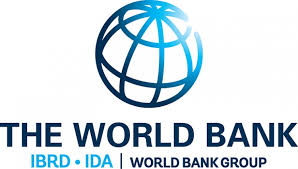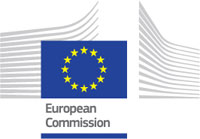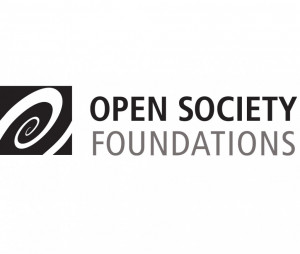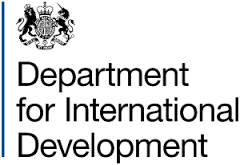The Government Transparency Institute (GTI) is a non-partisan think tank researching and advocating good governance. GTI was born from the research and civil society activism of its founder Mihály Fazekas at the University of Cambridge in 2015. GTI aims to provide an independent, research-driven voice to the causes of transparency, anti-corruption, and good governance in Europe as well as globally. GTI conducts innovative research on the causes, characteristics, and consequences of low-quality governance with interdisciplinary analysis, drawing on political science, economics, law, and data science. It is financed by private donations, research grants, and government contract work, and works independently of political parties or special interest groups.
GTI helps citizens and companies hold their governments accountable through the publication of novel datasets and robust analyses. GTI’s unique approach uses Big Data, econometrics, and qualitative methods to understand micro-behaviour, macro-outcomes, and the links between the two. Its main themes include corruption, collusion, spending efficiency, administrative quality, public procurement, and regulatory quality. We believe that the combination of a thorough qualitative understanding and precise quantitative measurement of the state is the foundation of good governance.
Staff
Mihály Fazekas – Scientific Director & Founder 
Mihály Fazekas is the scientific director of GTI, while also serving as an associate professor at the Central European University, Department of Public Policy, with a focus on using Big Data methods to understand the quality of government globally. He has a PhD from the University of Cambridge where he pioneered Big Data methods to measure and understand high-level corruption in Central- and Eastern Europe.
His research and policy interests revolve around corruption, favouritism, private sector collusion, and government spending efficiency. Methodologically, he has experience in both quantitative and qualitative methods in diverse fields such as public policy, economics, and political science. He worked at the University of Cambridge as the scientific coordinator of the Horizon 2020 funded project DIGIWHIST which used a Big Data approach to measuring corruption risks, administrative capacity, and transparency in public procurement in 33 European countries. While at University College London, he served as a co-Principal Investigator on the Global Integrity/FCDO funded research project looking at anti-corruption in development aid-funded as well as national procurement. He regularly consults the European Commission, Council of Europe, EBRD, OECD, World Bank, and a range of national governments and NGOs across the globe. He led a team of FCDO UK, GTI, and IMF which won the 1st prize at the IMF Anti-Corruption Challenge for measuring corruption and its costs globally.
Ágnes Czibik – Managing Director 
Ágnes Czibik is the managing director of GTI. She holds a master’s degree in economics with a specialisation in public policy and applied statistics. Her field of expertise is using large administrative datasets and robust quantitative analysis to provide tools for evaluating government performance and promoting transparency in the field of public procurement. She gained experience in working with various public procurement datasets across Europe while working in the large-scale Horizon2020 funded research project DIGIWHIST.
Bence Tóth – Senior Analyst (external expert)

Bence Tóth is a PhD candidate at UCL SSEES and a senior analyst at GTI. He was working on the DIGIWHIST research project based at the University of Cambridge, where he assisted the collection and publication of public contracting data from 35 jurisdictions across Europe and building indicators of administrative capacity and integrity. Currently, he works on the British Academy/DFID funded research project looking at anti-corruption in development aid-funded procurement. He is also frequently involved in policy research projects for the European Commission, World Bank, European Investment Bank, and various NGOs.
Together with Mihály Fazekas, he was awarded the first prize in the U4 Anti-Corruption Resource Centre competition for the best new proxy measure of corruption. His research focuses primarily on measuring corruption and collusion risks in public procurement markets using large-scale contract and company level data. His PhD research is about informality in locally managed public procurement contracts where informal enforcement and local information have particular importance in contract governance.
Gergő Székely – Chief Technology Officer

Gergő Székely holds an MSc in Computer Science from Budapest University of Technology and an MSc in Business Analytics from Central European University. He also has a joint economics degree with a specialization in banking from Bankarkepzo and Corvinus University. With over 15 years of experience in software engineering, Gergő has developed a wide range of data-driven solutions. As a key member of the GTI team, he leverages his technical expertise to improve data engineering pipelines, optimize software development practices, and oversee the company’s IT infrastructure. Gergő is also responsible for managing relationships with technical subcontractors, ensuring that the firm’s technological operations align with its mission to create a positive social impact.
Isabelle Adam – Analyst 
Isabelle Adam works as an analyst at GTI. She graduated in Global Public Policy at Central European University in Budapest and IBEI Barcelona, focusing on the governance of development. Previously, she studied Global Project and Change Management at Windesheim Honours College in Zwolle, the Netherlands, and gathered experience abroad in countries such as Uganda, Madagascar and Bolivia conducting field research and working in local NGOs. She works on a diversity of international projects, conducting qualitative and field research, on topics of good governance and public financial management, particularly anti-corruption in public procurement and the impact of reforms.
Ahmed Alshaibani – Analyst
Ahmed Al-Shaibani works as a quantitative analyst and data scientist at GTI. He has a Bachelor’s degree in Business Administration and Management, and an MS in Economic Analysis and Policy from the Central European University. His interests revolve around macroeconomics and technological impact on research. He is involved in diverse projects, which include research, data cleaning and transformation codes (JSON to CSV), advanced string-matching algorithms for the European Investment Bank, report automation for TenderX (an exciting new tool in development), web procurement data scraping, and reports writing on Framework Agreement Public Procurement for the OECD. He also contributes to other projects of the Institute in data science-related tasks, like data transformation and runtime efficiency in R and Python.
Aly Abdou – Analyst 
Aly Abdou works as a quantitative analyst at GTI. He holds a master degree in economic policy from Central European University and an engineering degree from Cairo University. He is interested in using network-oriented methods for impact assessment and causal analysis. He has experience with researching fiscal decentralization policies and government budgeting in Egypt. His independent research focuses in studying the network impact of cultural grants on artist’s success. At GTI, Aly is currently involved in data quality evaluation, data cleaning and preparation and quantitative data analysis.
Bianca Vaz Mondo – Analyst (external expert)

Bianca Vaz Mondo holds a master’s degree in Public Policy and a PhD in Governance from the Hertie School. Her doctoral research focused on the relationship between democratic accountability institutions and corruption, and her research experience further includes contributions to comparative research on the determinants of corruption and to the development of integrity and transparency indices. In addition to her academic background, she has extensive experience working with civil society in government monitoring projects in Brazil. Most recently, she led a project supporting a network of local watchdogs to closely monitor contracting procedures for the construction of school and nurseries in 20 Brazilian municipalities.
 Mohamed Elsaadany – Data Scientist
Mohamed Elsaadany – Data Scientist
Mohamed is a proactive data scientist with a keen interest in machine and deep learning. He earned his Bachelor’s degree in Computer Science from Eötvös Loránd University and is currently pursuing a Master’s in Data Science at the Università di Padova. Alongside his ongoing academic journey, Mohamed has built a robust career in data science, applying his solid foundation in programming, machine learning, statistical analysis, and data processing in real-world projects. At GTI, he also explores data engineering tasks such as data collection, storage, and preprocessing, ensuring that raw data is transformed into clean, actionable insights. His blend of academic knowledge and practical experience drives innovative solutions and consistently adds value to his team.

Viktoriia Poltoratskaya – Senior Analyst
Viktoriia is a senior analyst at the Government Transparency Institute (GTI) and a post-doctoral researcher at Central European University. Viktoriia holds a PhD in Political Science from CEU where her research focused on political corruption and clientelism in Russia. At GTI her work specializes in development and application of corruption risk indicators in public procurement, asset declaration data and company registers. Viktoriia has contributed to projects for the World Bank, OECD, Transparency International, U4 and European Commission.

Zdravko Veljanov – Senior Analyst
Zdravko Veljanov works as a senior analyst at GTI and is a PhD candidate in comparative politics at the Central European University. He holds a master’s degree in political science from the Central European University and a master’s degree in European Studies from the University of Flensburg and the University of Southern Denmark. His independent research focuses on autocratization in Southeast Europe, and the role of corruption during an autocratization episode. Zdravko previously worked as a researcher and analyst at the Center for Research and Policy Making (CRPM). He has also worked as a teaching assistant at CEU for multiple courses, including comparative politics, elections, and research methods. At GTI, Zdravko currently works on a research project for Transparency International.

Dániel Kofrán – Analyst
Dániel Kofrán works as a quantitative analyst at GTI. He completed his studies in Applied Economics and Economic Analysis at Corvinus University of Budapest. He previously worked on projects focusing on causal data analysis based on observational datasets. His professional interests revolve around quantifying indicators and measuring causal inference in the field of good governance.
Maria Fernanda Quintero – Analyst
Maria Fernanda Quintero works as an analyst at GTI. She is a lawyer and holds a master degree in Public Policy from the University of Tokyo, with an emphasis on economic policy, finance and development. She also has a master in Public Business Law from the University Paris 1 Panthéon-Sorbonne. Maria’s area of interest focuses on the performance of government spending, policy design, and institutional reforms. She has experience with public procurement governance in Colombia and other Latin America countries. Maria is involved in public procurement research projects in this region.

Eszter Katona – Analyst
Eszter Katona holds a master’s degree in Statistics and a PhD in Sociology from Eötvös Loránd University, where she also works as an assistant professor and researcher. She is a quantitative analyst at GTI, specializing in data visualization and text mining projects.
Ivana Rudinac – Analyst

Ivana works as an analyst at GTI. Ivana Rudinac is a PhD candidate at Central European University (CEU) in Vienna, focusing on development and governance. In her dissertation research, she is exploring the links between development assistance from different donors and governance and state-society relations in recipient countries, with a regional focus on the Western Balkans. Previously, she worked on several research projects for the European Commission, conducting qualitative and quantitative research on good governance and reform support programs. At GTI, she works on research projects for the Infrastructure Transparency Initiative (CoST), DG REGIO and the World Bank.
Melinda Kelemen – International and EU Research Grant Manager
Melinda has 10+ years track record of designing and managing high-level, complex EU-funded projects. She also works as a contract-based EU project manager and industrial relations expert for a range of organisations across Europe. She holds an MA in Sociology from Eötvös Lóránd University in Hungary, an MA in European Industrial Relations from University of Warwick in the UK and a post-graduate Humanitarian Response Manager specialized training qualification from University of Óbuda. Her working languages are English and Hungarian. Melinda is responsible for running GTI’s EU-co-funded and other large-scale projects smoothly in terms of administration and financial issues.

Tamás Elekes – Data Engineer
Tamás Elekes holds a BSc in Computer Science from Budapest University of Technology and Economics and an MSc in Data Science from the University of Amsterdam. Currently, Tamas is working on developing public procurement data pipelines and tooling to support government transparency initiatives. With experience in various projects aimed at creating positive societal impact, Tamas is now dedicated to leveraging data-driven solutions to promote transparency and accountability in public governance.

Mihály Nagy – Data Manager
Mihály Nagy studied Political Science for his bachelors and completed an MA course in digital humanities at King’s College London. For the past three years he has been working as a programmer and freelance data analyst, contributing to projects including web scraping, building annotated textual databases, and developing light-weight web applications. He is currently pursuing a PhD in Digital History and Web Archiving at ELTE Budapest.

Tímea Sutus-Juhász – Office Manager
Tímea Sutus-Juhász holds a master’s degree in Economics from University of Pécs. She is an office manager at GTI, dealing with administration, finance and HR.

Virág Kégl – Junior Data Quality Analyst
Virág Kégl is currently pursuing her master’s degree in Computational Cognitive Science at BME. She also holds a position at CEU and KRTK as a research assistant. As a member of Rajk College for Advanced Studies, Virág has participated in numerous courses, such as Econometrics I-II., Text Mining and Programming and Algorithm Theory, and has been a teacher’s assistant in Econometrics I-II. After finishing her master’s she plans to move forward to start aPhd programme. Her tasks at GTI include error reporting, creating annotations and website and regulatory mapping.

Kincső Temesszentandrási – Junior Data Quality Analyst
Kincső Temesszentandrási holds a bachelor’s degree in Sociology from ELTE and she is currently pursuing a master’s degree in Social Behavior Analysis with Big Data specialization. She wrote her thesis on institutionalized corruption in Hungary and how it appears in economy focusing on public procurement. Furthermore her area of interest is in political or power elite as a phenomenon so she would like to deal more with this topic in the future. Her main tasks at GTI include source mapping, annotation, data validation and error reporting.
Main clients, partners and supporters

